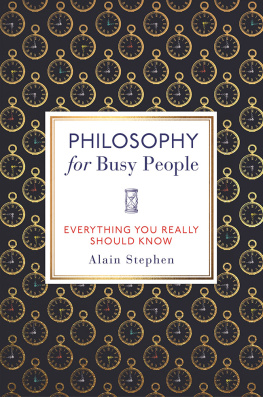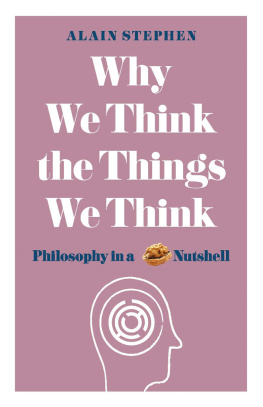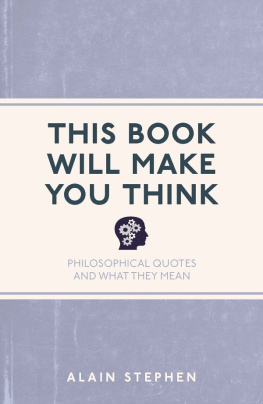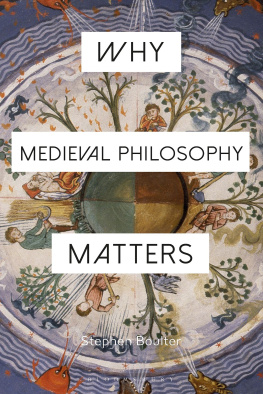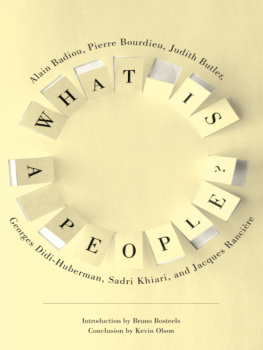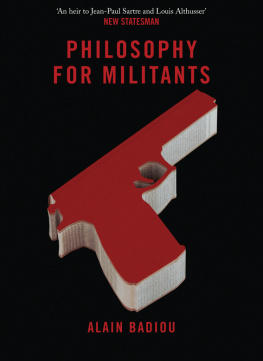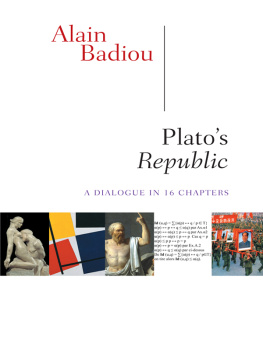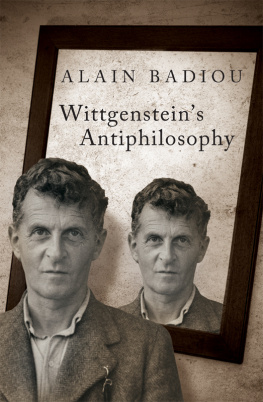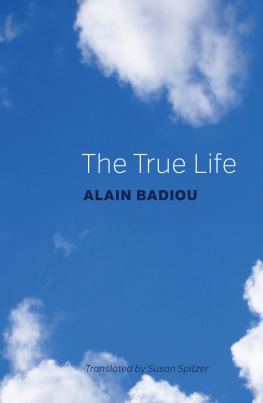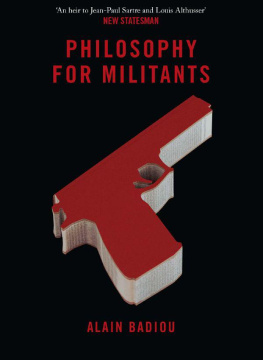Alain Stephen - Philosophy for Busy People
Here you can read online Alain Stephen - Philosophy for Busy People full text of the book (entire story) in english for free. Download pdf and epub, get meaning, cover and reviews about this ebook. year: 2019, publisher: Michael O’Mara, genre: Romance novel. Description of the work, (preface) as well as reviews are available. Best literature library LitArk.com created for fans of good reading and offers a wide selection of genres:
Romance novel
Science fiction
Adventure
Detective
Science
History
Home and family
Prose
Art
Politics
Computer
Non-fiction
Religion
Business
Children
Humor
Choose a favorite category and find really read worthwhile books. Enjoy immersion in the world of imagination, feel the emotions of the characters or learn something new for yourself, make an fascinating discovery.
- Book:Philosophy for Busy People
- Author:
- Publisher:Michael O’Mara
- Genre:
- Year:2019
- Rating:3 / 5
- Favourites:Add to favourites
- Your mark:
- 60
- 1
- 2
- 3
- 4
- 5
Philosophy for Busy People: summary, description and annotation
We offer to read an annotation, description, summary or preface (depends on what the author of the book "Philosophy for Busy People" wrote himself). If you haven't found the necessary information about the book — write in the comments, we will try to find it.
Philosophy for Busy People — read online for free the complete book (whole text) full work
Below is the text of the book, divided by pages. System saving the place of the last page read, allows you to conveniently read the book "Philosophy for Busy People" online for free, without having to search again every time where you left off. Put a bookmark, and you can go to the page where you finished reading at any time.
Font size:
Interval:
Bookmark:

PHILOSOPHY
for Busy People
Also by Alain Stephen
Why We Think the Things We Think
This Book Will Make You Think

First published in Great Britain in 2019 by
Michael OMara Books Limited
9 Lion Yard
Tremadoc Road
London SW4 7NQ
Copyright Michael OMara Books Limited 2019
All rights reserved. You may not copy, store, distribute, transmit, reproduce or otherwise make available this publication (or any part of it) in any form, or by any means (electronic, digital, optical, mechanical, photocopying, recording or otherwise), without the prior written permission of the publisher. Any person who does any unauthorized act in relation to this publication may be liable to criminal prosecution and civil claims for damages.
A CIP catalogue record for this book is available from the British Library.
ISBN: 978-1-78929-065-3 in hardback print format
ISBN: 978-1-78929-066-0 in ebook format
www.mombooks.com
CONTENTS
Truth is a thing of this world: it is produced only by virtue of multiple forms of constraint. And it induces regular effects of power. Each society has its regime of truth, its general politics of truth: that is, the types of discourse which it accepts and makes function as true; the mechanisms and instances which enable one to distinguish true and false statements, the means by which each is sanctioned, the techniques and procedures accorded value in the acquisition of truth; the status of those who are charged with saying what counts as true.
MICHEL FOUCAULT (1977)

I n the modern age where the speed of life is bewildering at times, it is important to make space in our lives to think and reflect upon our assumptions and ideas. As Socrates (469399 BC) is memorably alleged to have said in relation to the oracle: He, O men, is the wisest, who, like Socrates, knows that his wisdom is in truth worth nothing. Or put another way, people who acknowledge that they dont actually know anything are wisest. This is not because they possess some higher wisdom than other mortals, but because they know that they do not. The search for truth and the asking of questions is the true purpose of philosophy.
For many an armchair philosopher, the title of this book probably sounds like a contradiction in terms. Philosophy and busy. Yet philosophy is by nature an active, considered pursuit of knowledge. And what did the Ancients say?
Aristotle (384322 BC) promoted the idea of leisure; only the wise, Platos philosopher Kings, were worthy of making decisions and promoting and cultivating virtuous living.
Those Guardians, as Plato (c. 428347 BC) termed them in The Republic (c. 380 BC), certainly werent expected to work very hard, if actually work at all. It must have been lovely hanging out around the Lyceum (Aristotles public place of learning established in 334 BC), comparing beard sizes and furrowing brows in quiet contemplation of what it all means.
So do busy people have time for philosophy in this day and age? How often do you hear people lament that there arent enough hours in the day?
The unexamined life is not worth living.
SOCRATES
The origins of the word philosophy, not surprisingly, derive from Ancient Greek. The root word philo means loving or tending to/caring for, and sophos means wise or wisdom. So a philosopher is someone who loves and cares for wisdom and knowledge, while the standard dictionary definition of philosophy is the study of the fundamental nature of knowledge, reality and existence, i.e. trying to discover what it all means: who are we and why are we here?
A worthy aim, but where to start? There are thousands of years of human thought to wade through; diverse and contradictory ideas and concepts, all devoted towards establishing fundamental truths about our existence as sentient beings. But if, as I am suggesting, philosophy is about unearthing truth, where can we find it and how to begin our search?
This book is your philosophy primer an easily digestible exploration thats structured thematically of the key concepts and areas of knowledge that are integral to human life and thought. Think of it as a tasting menu, serving up little plates of tasty morsels of philosophy.
The Philosophy of Happiness (see for living well; perfection in respect of virtue; resources sufficient for a living creature. But Platos contemporary, Aristotle, points out that while saying the desire to live well is surely self-evident nobody in their right mind would wish to live badly or lead an unhappy life the real question is specifying what areas and activities enable one to live well and achieve happiness. So the Philosophy of Happiness means going back to Ancient Greece, then to China and India before jumping forward several thousand years to Denmark, the happiest country in the world. It is not surprising that the same things that troubled and perplexed the Ancients are still major concerns in our search for wellbeing. And one of the key issues in the pursuit of Eudaimonia is the extent to which our personal pursuit of happiness impacts on and affects the people around us, and our wider communities, and the world in general.
the mind to the objects, ergo if we trust and process the information we receive through our sensory perceptions and neither deny nor distort them in our minds, we arrive at what is known as the correspondence theory of truth. Put crudely, if you pick up a hammer and bash somebody over the head, the result is self-apparent.
The Philosophy of Science () is a key issue, with truth corresponding to our perception of objects and ideas. History is littered with examples of what people believed to be scientifically true, subsequently being proved false. So how do we respond to St Thomass theory of truth when what is true in one epoch might not be so in the next? How do we determine concrete facts about the universe and everything therein? And, increasingly, commentators have flagged up the blurring of truth with opinion facts deployed in support of opinion and, vice versa, opinion presented as facts.
progressively difficult in the current political and social climate, as it appears increasingly that we are in an age where the search for a cogent expression of truth, in the historical and authentic sense, has become one of finding plausible ways not to present the truth but instead to mask and blur how information is presented (but that is only an opinion, not a fact). Power, for Foucault, is everywhere concealed in institutions and discourses.
The Philosophy of Religion () is fascinating in both a historical and contemporary sense as it feeds into current debates on the teaching of creationism or intelligent design in US schools. It is apposite also to look back at just how truthful virtues of honesty, faithfulness and loyalty are being promoted.
and The Philosophy of Language tackles how words are used. How is meaning transmitted, received and distorted? It has been said that we are living in an era of post-truth, which the African-born philosopher A.C. Grayling (b. 1949) defines as a cultural phenomenon where opinion is worth more than the facts. Judgements are made on the basis of feelings and emotions as opposed to concrete, irrefutable facts. The search for truth goes on. Which brings us to
The final two chapters cover The Philosophy of Love, which Id hoped might wrap up the whistle-stop charge through the history of thought on a positive note. However, the gloomy musings of Jean-Paul Sartre (190580) and Friedrich Nietzsche (18441900) scuppered that plan, and we end with The Philosophy of the Future, a generalized discussion on contemporary thought while speculating what the future of philosophy may look like.
Font size:
Interval:
Bookmark:
Similar books «Philosophy for Busy People»
Look at similar books to Philosophy for Busy People. We have selected literature similar in name and meaning in the hope of providing readers with more options to find new, interesting, not yet read works.
Discussion, reviews of the book Philosophy for Busy People and just readers' own opinions. Leave your comments, write what you think about the work, its meaning or the main characters. Specify what exactly you liked and what you didn't like, and why you think so.

